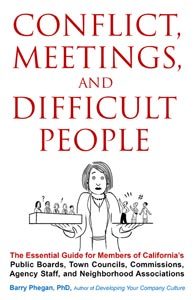 Condensed from Measuring What Matters, Scientific American, August 2020, by Joseph E Stiglitz, Nobel Prize winner in Economics.
Condensed from Measuring What Matters, Scientific American, August 2020, by Joseph E Stiglitz, Nobel Prize winner in Economics.
Gross Domestic Product (GDP) is almost universally used to gauge how well a society is doing. In fact, it is a measure of market activity — no more. We need a more inclusive metric that measures what’s good for the many, not just a few.
Performing to the Measure
What we measure often changes what people do. There is a Cold War Russian tale of the nail plant that responded creatively to the Politburo’s measure of plant excellence — the weight of nails produced per year. The new plant manager excavated a 30-meter trench shaped like a nail, pouring in a year’s steel production. His plant won the award, the performance measure was changed, and the manager was shipped to the Gulag for “insolence against the state”.
The GDP is such a measure. By oversimplifying the meaning of progress, over 75 years, it helped create a handful of winners and truckloads of losers.
GDP measures everything except what makes life worthwhile. The number does not measure health, education, equality of opportunity, the state of the environment, or any other indicators of the quality of life, such as whether an economy is sustainable or headed for a crash.
A Weakened Nation
Covid-19 highlighted these GDP deficiencies. We were woefully unprepared. Emphasis on efficiency stripped healthcare flexibility, generated widespread financial and physical insecurity, and reduced economic sustainability and resilience, leaving Americans more vulnerable to shocks than the citizens of other countries.
The economist Simon Kuznets developed the GDP measure in the 1940s, warning that it should not be mistaken for a metric of social or even economic well-being. It included many goods and services that he knew were harmful (armaments) or useless (financial speculation) and excluded many essential ones that were free (such as caregiving by homemakers). But as the GDP became the standard measure of progress, we lost sight of its shaky foundations, as those in power shaped it to their advantage.
After World War II inequality rose precipitously, but a federal collection of statistics on inequality was blocked, along with data on the harmful effects of guns, tobacco, and coal mining. Politics and metrics go hand-in-hand. Often those metrics are phony.
Upside-Down Financial Sector
Deregulating the financial sector created hefty profits for individual bankers but devastation for millions of Americans. By the early 2000s, 2/5ths of corporate profits came from the financial sector. That’s corruption.
An efficient financial sector should entail low costs for engaging in financial transactions and therefore should be small. Ours is huge, driving up GDP and instability. 90% of gains go to the top 1%. That’s inequality.
Rising GDP brought falling health. Food companies add sugar-rich foods, augmenting GDP but precipitating an epidemic of childhood diabetes. Addictive opioids brought an epidemic of drug deaths, but profits of Perdue Pharma and others added to the GDP. The medical expenses resulting from these health crises also boosted GDP. Similarly, coal mining boosted the economy while driving climate change, worsening the impact of hurricanes, lung disease, and environmental degradation.
When GDP is disconnected from social well-being and corporate “externalities” (a.k.a. dumping), we don’t know if rising GDP means better or worse health, equality, environment, sustainability, or satisfaction. Black Lives Matter increases our awareness of structural inequality and its winners and losers.
Resisting Change
Winners resist broader measures of national progress because they win big from the single-minded GDP. They generously contribute to politicians and institutions that support the status quo, even though they, as primary beneficiaries, are way less than 1% of the nation.
GDP is just one thread in our national Shroud of Inequality. I’m hoping the expanding online forums on inequality, and the current early election of more liberal candidates, signal a growing push for a more equitable society, with improved mental, physical, and financial health for all citizens — and a more sustainable world.
It’s time to toss the GDP and agree on a more effective measure of progress to shape and guide an equitable future.
Please give me your ideas or suggestions on this or other blogs. I do appreciate your feedback. Thank you.
me, Barry Phegan
Add Your Name below to my list to know when I have posted a new blog.





